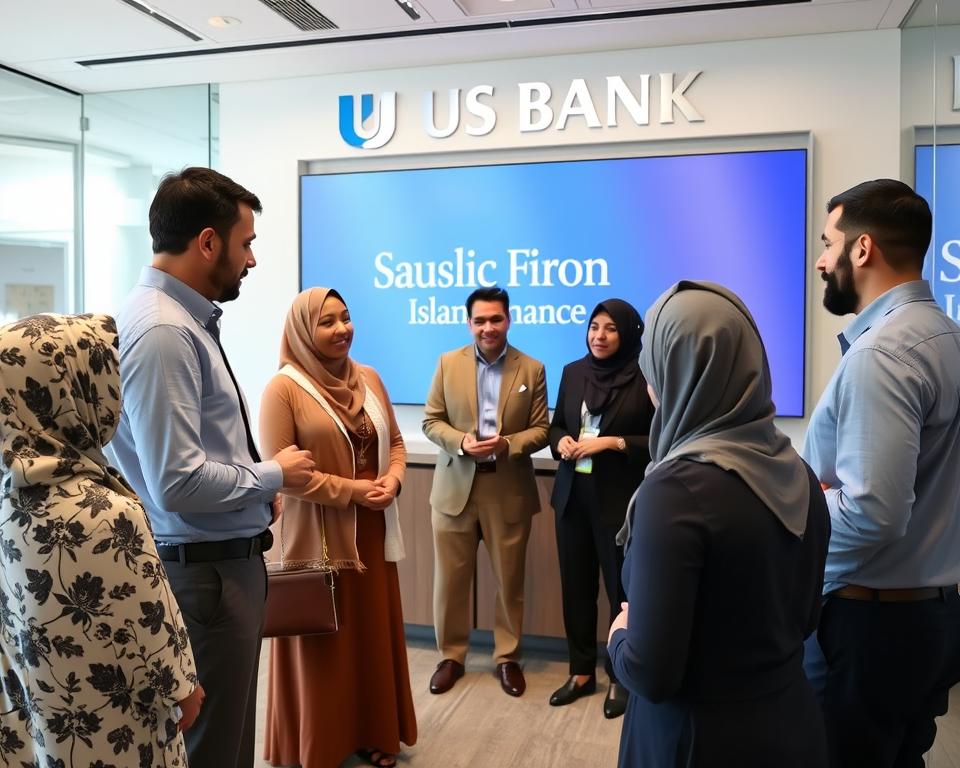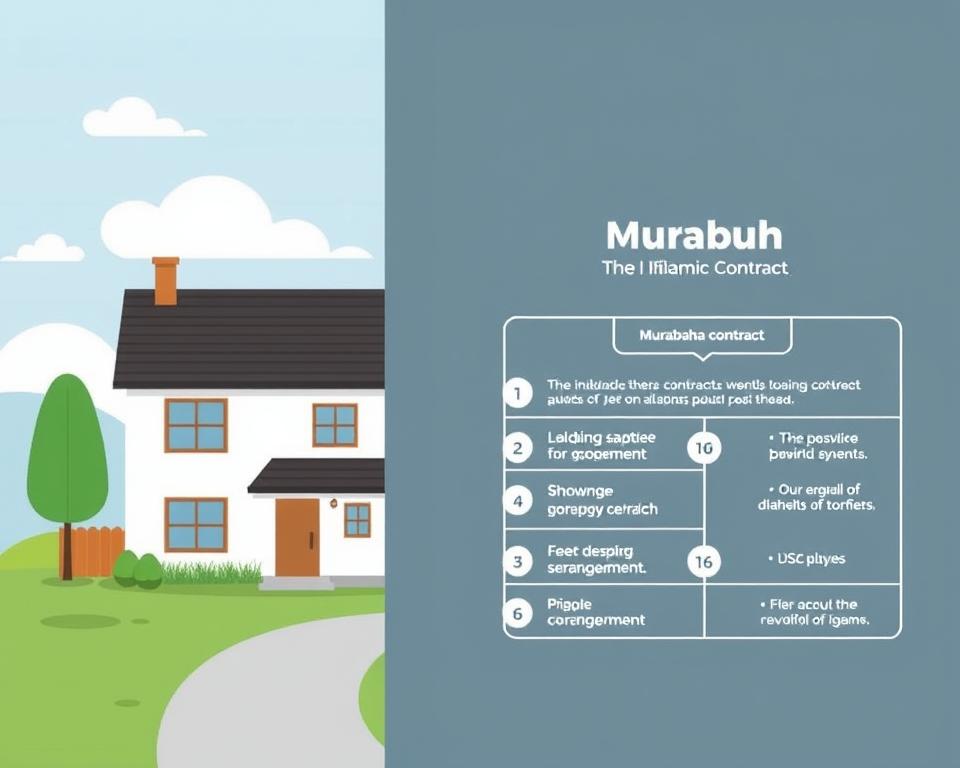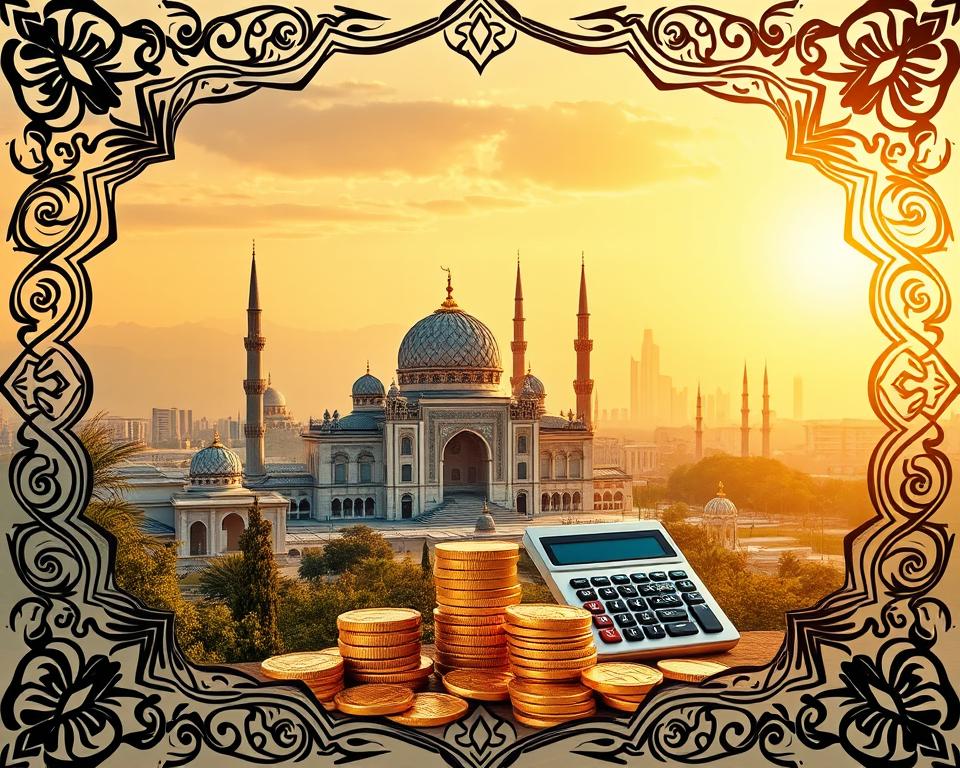In the United States, a growing financial system is gaining attention for its adherence to Sharia law and ethical banking practices. Islamic Finance has evolved significantly over the past few decades, from a virtually non-existent industry to a global market valued at $3.96 trillion.
This financial system offers an alternative to conventional banking, appealing to those seeking socially responsible financial options. It provides Muslims and non-Muslims alike with ways to manage money, invest, and secure financing while adhering to their personal values.
Our comprehensive guide will explore the fundamental principles of Islamic Finance, available products, major providers, and its benefits in the US, making it an inclusive financial option for everyone.
Table of Contents:
- Understanding Islamic Finance Principles
- How Islamic Finance Differs From Conventional Banking
- Islamic Finance & Loans in the United States
- Types of Islamic Financial Products Available
- Benefits of Choosing Islamic Finance
- How to Access Islamic Financial Services
- Conclusion: The Future of Islamic Finance in America
Understanding Islamic Finance Principles
Understanding the principles of Islamic finance is crucial for those looking to engage with shariah-compliant financial services. Islamic finance operates under a distinct set of rules derived from Islamic law, or Shariah, which governs economic activities.
What Is Islamic Finance?
Islamic finance is a financial system that adheres to Islamic law, prohibiting the collection and payment of interest. It’s based on the belief that money has no intrinsic value; it’s merely a medium of exchange for goods and services that have value.
Core Principles of Shariah-Compliant Banking
The core principles include the prohibition of interest (riba), avoidance of excessive uncertainty (gharar), and prohibition of gambling (maysir). Islamic banking emphasizes risk sharing and ethical investing, avoiding harmful industries like alcohol and tobacco. It promotes social justice through mechanisms like charitable giving (zakat).
How Islamic Finance Differs From Conventional Banking
Islamic finance operates under a distinct framework that diverges significantly from conventional banking systems. This difference is primarily rooted in the principles of Shariah law, which guides Islamic financial institutions.
The Prohibition of Interest (Riba)
One of the core distinctions lies in the prohibition of interest, or Riba, in Islamic finance. Shariah law forbids the collection and payment of interest, considering it exploitative. Instead of issuing interest-based loans, Islamic banks engage in transactions where they buy and then sell or lease assets to clients at a markup. This approach ensures that financial transactions are fair and equitable.

Risk-Sharing vs. Risk-Transfer Models
Another significant difference is the risk-sharing model adopted by Islamic finance, as opposed to the risk-transfer model used in conventional banking. In Islamic finance, both the bank and the client share the risks and rewards of a transaction. This is in contrast to conventional banking, where the risk is typically transferred to the borrower. The risk-sharing model promotes a more equitable financial system.
Islamic Finance & Loans in the United States

As the Islamic finance sector continues to evolve, it is gaining acceptance in the mainstream US financial landscape. With a compound annual growth rate of 9%, the industry is expanding rapidly.
Current Market Size and Growth
The US Islamic finance market is experiencing significant growth, driven by a growing Muslim population and increasing interest from non-Muslim investors seeking ethical financial alternatives. The market size is expanding beyond traditional Muslim communities, attracting a diverse clientele drawn to Shariah-compliant principles.
Major Islamic Financial Institutions in the US
Several major Islamic financial institutions operate in the US, including fully Shariah-compliant banks like Bank of Whittier and University Bank, as well as conventional banks offering Islamic financial windows. These institutions provide a range of Shariah-compliant financial products, catering to the growing demand for ethical and responsible financial services.
Types of Islamic Financial Products Available
In the United States, consumers can access a variety of Islamic financial products that align with Islamic law. These products cater to different financial needs, from home financing to investment opportunities.
Home Financing Options
Murabaha and Musharakah are two popular home financing options. In a Murabaha contract, the bank buys the property and sells it to the buyer at a marked-up price, payable in installments.
In a Musharakah agreement, the bank and buyer jointly purchase the property, with the buyer gradually buying out the bank’s share.
Islamic Investment Accounts
Islamic checking and savings accounts operate without paying or charging interest. Instead, they may offer profit-sharing arrangements based on the bank’s investments, ensuring Shariah compliance.
Sukuk (Islamic Bonds)
Sukuk represents ownership in tangible assets or projects, providing returns from profits rather than interest. This Shariah-compliant instrument is an alternative to conventional bonds.
Islamic Insurance (Takaful)
Takaful operates on principles of mutual cooperation and shared responsibility, differing from conventional insurance models. It provides an ethical alternative for risk management.
Benefits of Choosing Islamic Finance
Islamic finance offers a unique blend of ethical investing and financial stability, making it an attractive option for consumers in the United States. This financial system is grounded in Islamic principles that emphasize fairness, transparency, and ethical conduct.
Ethical and Socially Responsible Investing
Islamic finance is characterized by its commitment to ethical and socially responsible investing. It prohibits investments in industries deemed harmful or unethical, such as alcohol, gambling, and weapons manufacturing. This approach not only aligns with Islamic values but also appeals to a broader audience seeking to make responsible financial decisions. By avoiding speculative activities and focusing on real economic assets, Islamic finance promotes a more stable and equitable financial system.
Financial Stability and Risk Management
The asset-backed nature of Islamic financial products contributes to greater financial stability and transparency. Islamic banks avoided the 2008 financial crisis to a significant extent due to their avoidance of toxic assets and speculative instruments. The profit-sharing model inherent in Islamic finance fosters a more equitable relationship between financial institutions and their customers, potentially leading to better risk management and more sustainable financial practices. 
How to Access Islamic Financial Services
Whether you’re Muslim or not, Islamic financial services offer an ethical and transparent alternative to conventional banking. These services are designed to be inclusive, catering to a diverse clientele seeking Shariah-compliant financial solutions.
Finding Shariah-Compliant Financial Providers
To find Shariah-compliant financial providers, you can search for fully Islamic banks, conventional banks with Islamic windows, or online financial institutions. Resources like the Islamic Finance Council, community organizations, and online directories can help you research and identify reputable providers.
When evaluating a provider, look for a Shariah supervisory board, transparent contracts, and a range of products that meet your needs.
Application Process for Islamic Loans
The application process for Islamic home financing differs from conventional mortgage applications. Typically, you’ll need to provide financial documentation and undergo a credit check. Islamic banks use models like Murabaha or Musharakah for home financing, where the bank and customer share the risk.
Understanding the documentation required and the approval criteria can help streamline the application process.
Conclusion: The Future of Islamic Finance in America
The future of Islamic finance in America looks promising, with its principles aligning with the growing trend towards sustainable investing. As we’ve explored, Islamic finance offers a range of products and services that adhere to Shariah principles, providing an ethical alternative to conventional banking.
Key factors driving the growth of Islamic finance in the US include an increasing Muslim population, a growing interest in ethical finance, and supportive regulatory developments. Emerging trends such as the integration of fintech solutions and blockchain technology are also expected to play a significant role.
By prohibiting speculation and leveraging risk-sharing mechanisms, Islamic banks have demonstrated resilience in turbulent economic times. With a host of new financial innovations and robust regulatory backing, Islamic finance is poised to contribute to greater financial inclusion and diversity in the American financial ecosystem, potentially becoming a more mainstream alternative in the future.

